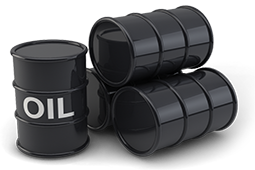
India's oil product demand slows in March

A surge in coronavirus cases and deaths is prompting a rethink by the government, which until last week was discussing lifting the lockdown. But now the federal government and state governments want to continue the restrictions with some relaxations, which will further weigh on fuel demand.
Demand for diesel last month fell to 1.2mn b/d, gasoline use fell to 529,000 b/d and jet fuel consumption fell to 118,000 b/d, according to data for state-controlled oil companies compiled by refiner IOC. LPG sales rose by 2pc to 2.29mn t last month.
Demand this month for transport fuels is currently only a third of this time last year, an official from state-controlled refiner Bharat Petroleum (BPCL) said. IOC, BPCL and Hindustan Petroleum operate 223 of the 255 jet fuel outlets in India and 61,490 retail outlets in the country or 89pc of the total.
Diesel consumption averaged 1.79mn b/d in March 2019, with gasoline at 703,000 b/d and jet fuel at 182,000 b/d, according to data from the oil ministry that includes data from Indian private-sector refiner Reliance Industries (RIL) and Russian Rosneft-owned Nayara Energy. Provisional industry-wide fuel data from the government may be available next week.
Reduced fuel demand has forced Indian state-controlled refiners, with a combined capacity of 3.22mn b/d, to cut refinery runs to around 50pc on average. Run rates at individual refineries vary in a 30pc-65pc range. But this still exceeds current domestic demand with little storage space left to stockpile oil products. Refiners are unable to exercise force majeure on April crude purchases, forcing them to load cargoes and seek domestic storage or tankers for floating storage, or consider operating their refineries at higher runs.
RIL and Nayara are the country's largest product exporters with RIL's 704,000 b/d refinery in Jamnagar on the west coast dedicated to exports. RIL is operating its two refineries totalling 1.36mn b/d at Jamnagar at usual capacity and has not cut runs because of its focus on exports, a company official said. RIL and the 400,000 b/d Nayara also supply their combined 7,080 retail outlets in India, sell fuel in the wholesale market and in some cases supply Indian state-controlled companies.
By S Dinakar


Newmont nets $100M payment related Akyem mine sale

First Quantum scores $1B streaming deal with Royal Gold

Caterpillar sees US tariff hit of up to $1.5 billion this year

Gold price rebounds nearly 2% on US payrolls data

Copper price collapses by 20% as US excludes refined metal from tariffs

St Augustine PFS confirms ‘world-class’ potential of Kingking project with $4.2B value

B2Gold gets Mali nod to start underground mining at Fekola

Goldman told clients to go long copper a day before price plunge

Copper price posts second weekly drop after Trump’s tariff surprise

Codelco seeks restart at Chilean copper mine after collapse

US slaps tariffs on 1-kg, 100-oz gold bars: Financial Times

BHP, Vale offer $1.4 billion settlement in UK lawsuit over Brazil dam disaster, FT reports

NextSource soars on Mitsubishi Chemical offtake deal

Copper price slips as unwinding of tariff trade boosts LME stockpiles

SAIL Bhilai Steel relies on Danieli proprietary technology to expand plate mill portfolio to higher steel grades

Alba Discloses its Financial Results for the Second Quarter and H1 of 2025

Australia weighs price floor for critical minerals, boosting rare earth miners

Australia pledges $87M to rescue Trafigura’s Nyrstar smelters in critical minerals push

Fresnillo lifts gold forecast on strong first-half surge

US slaps tariffs on 1-kg, 100-oz gold bars: Financial Times

BHP, Vale offer $1.4 billion settlement in UK lawsuit over Brazil dam disaster, FT reports

NextSource soars on Mitsubishi Chemical offtake deal

Copper price slips as unwinding of tariff trade boosts LME stockpiles

SAIL Bhilai Steel relies on Danieli proprietary technology to expand plate mill portfolio to higher steel grades

Alba Discloses its Financial Results for the Second Quarter and H1 of 2025

Australia weighs price floor for critical minerals, boosting rare earth miners

Australia pledges $87M to rescue Trafigura’s Nyrstar smelters in critical minerals push

Fresnillo lifts gold forecast on strong first-half surge














